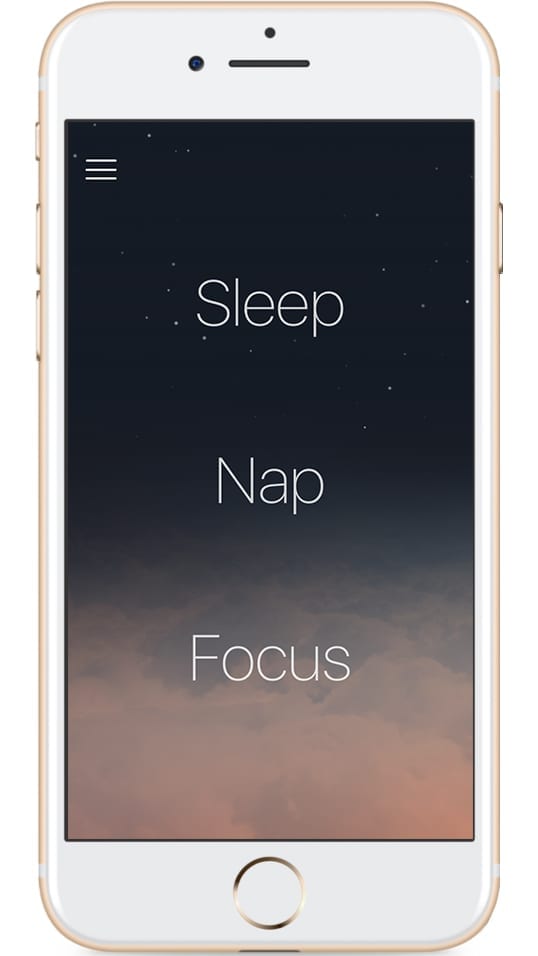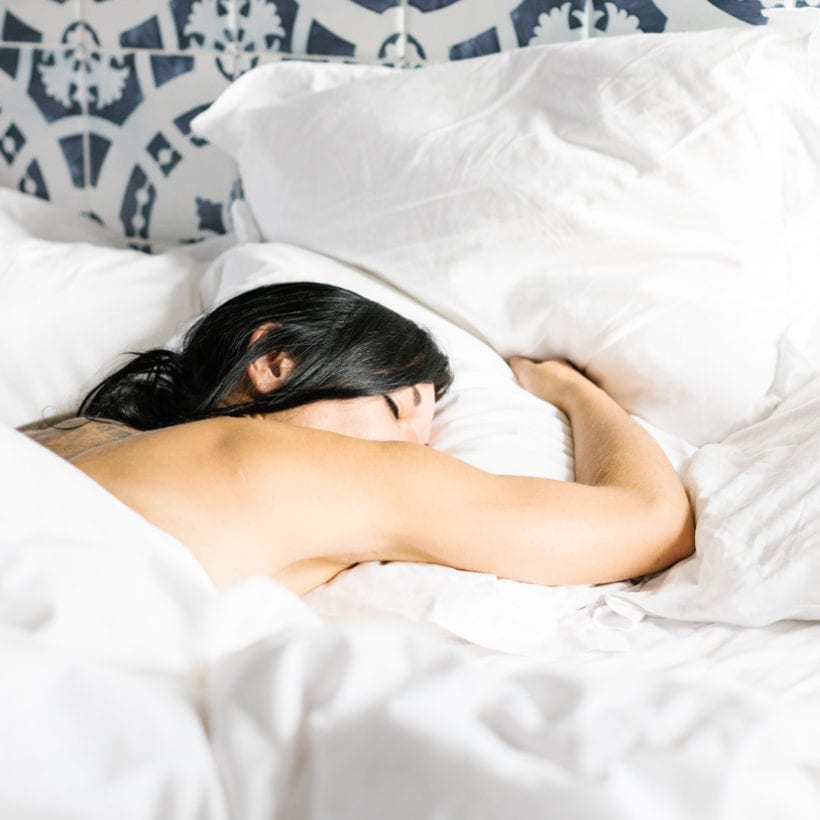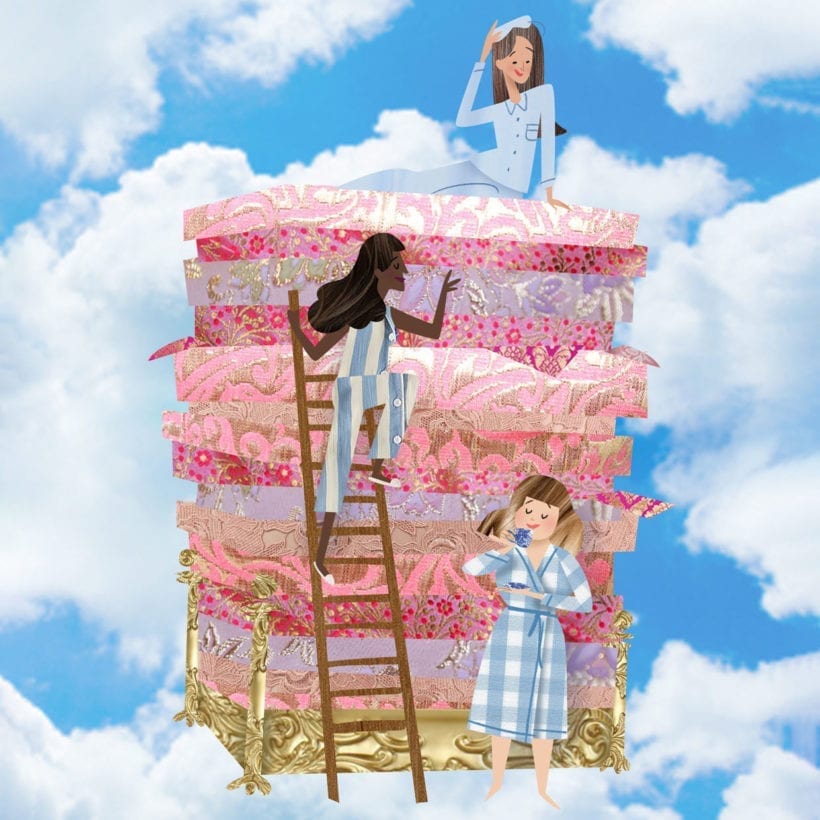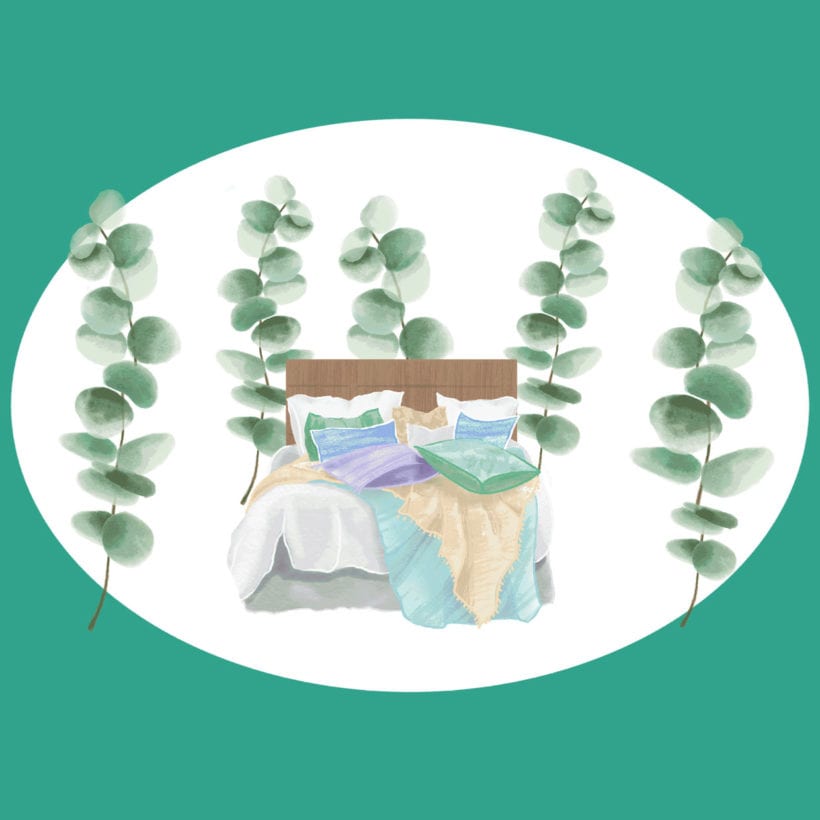Are you getting the best sleep possible? No matter how much you toss and turn, count sheep or attempt to meditate, there are some nights when sleep is more of an illusion than a reality.
After all, as Rockwell Shah, sleep expert and founder of the napping app, Pzizz, puts it — we have been culturally brainwashed to wear our lack of sleep as a badge of honor. “People used to walk in the office bragging about getting four hours of sleep because they were working so hard,” he continues. “It’s no wonder given this lack of emphasis, education, and attention, that most of the population is confused about the importance of healthy sleep. Luckily this is slowly but surely starting to change as people understand how important sleep is to overall well-being.”
The only issue is knowing whether or not to believe common sleep advice — or not. And more to the point: How do we measure how healthy our sleep habits are when most lifestyles do not prioritize it? Here, sleep experts set the record straight on all things sleep.
How do you know if you’re getting enough sleep?
TLDR: Most of the time, seven hours is the best goal.
Though Shah says the number of required hours of sleep can vary based on your health, age and other factors, the vast majority of people should aim for at least seven hours of shut-eye per night. If you are tallying up the numbers and you think you are getting enough rest, but you still feel tired — your quality of slumber could be impacted. This is why Seema Sarin, M.D., the director of lifestyle health, including sleep, of EHE Health says it is important to do a check-in when you first wake up to see how you are feeling. If you actually drifted to dreamland effectively, you won’t feel overly tired or sluggish when your alarm clock goes off.
If you always wake up on the wrong side of the bed, it could be worthwhile to explore ways to reach a deeper sleep (aka REM) by talking with your doctor who can cater to your specific needs. Or, if you want to start improving your habits before a doctor visit, Shah recommends going to bed without setting an alarm on the weekend and allowing your body to rise when it wants to. This can be an indicator of the rest of your mind and body crave.
Can you catch up on sleep?
TLDR: Not really.
Shah says, sadly, you can’t make up for those missed hours. A recent study by Harvard Medical School followed sleep-deprived students for weeks who tried to make up for the all-nighters with 10 hours of continuous sleep on the weekend. What they found was that ‘sleeping in’ after these bouts of no shut-eye did not reverse the negative side effects. Instead, it could actually lead to chronic sleep issues.
“When you are partially sleep-deprived, the next opportunity you get, you drop into a deep sleep much faster. In a sense then you are compensating for the decrease in a deep sleep on previous nights,” Shah says. “However, you can’t make up the day you spent sleep-deprived — which was most likely a day spent more stressed, with a weakened immune system, and impaired learning ability.”
Another culprit that impacts our REM cycle (the deep sleep phase we enter to really rest well) is alcohol. In fact, the more you drink, the more unsettled your slumber will be and you could find yourself waking up several times during the night or struggling to return to the Z’s.
Does our sleeping position matter?
TLDR: Actually, yes.
Even if you are a big fan of tummy sleeping or like to curl up into a little ball — your back is actually the best sleeping position for quality, healthy sleep. As Sarin says, the way you get comfortable at bedtime makes a big difference in how well you rest and how you feel in the morning. Not to mention sleeping on your back is best for your pores, since it reduces wrinkles! When you have a poor sleep posture, you may experience back pain, muscle cramps, headaches and gastric issues, she adds. If you simply ‘can’t’ get to sleep on your back, your side is the next-best position. If you have an injury, Sarin suggests chatting with a physician who can make recommendations on pillows, mattresses or other aids that will help you rest easier.
Is beauty sleep a thing?
TLDR: Yes!
Sarin says getting quality rest helps your skin to build new collagen, and reduces the appearance of fine lines and wrinkles. Our bodies also send additional blood flow to our skin when we are asleep, which Sarin explains improves our overall complexion. She says that our bodies produce lower levels of the stress hormone, cortisol, when we are asleep, which causes us to produce more collagen, minimizing fine lines and strengthening our pores.
On the other hand, if you are not resting enough, it will show with dark, thick circles under your eyes, dull-looking skin and increased signs of aging. Because your pores do not have a chance to regenerate overnight, you may also experience more breakouts or other skin conditions, according to Sarin. And though this is a bummer if you are posing for photos after an evening of zero sleep, it is even worse news for what is happening internally: “Beauty sleep is real, as a lack of quality rest can wreak havoc on your health,” Sarin continues. “Sleep deprivation can increase your risk of chronic medical conditions like obesity, diabetes, hypertension and heart disease, which can lead to a shorter life expectancy.”
Is dreaming healthy?
TLDR: Most of the time, yes.
Do you wake up eager to share your dream? If so, you could be achieving REM sleep, which Sarin says is a healthy place to be throughout the night. It is a special kind of rest that most people can and do reach, which is characterized by rapid eye movements, a faster pulse and heavier breathing. In other words: you are very, very asleep — and that’s a good thing!
When we reach this deep of slumber, we are actually improving our resilience against stress, and processing any mental woes that torment us during the day. As Shah explains, most adventures in dreamland are associated with memory reactivation, processing and storage — all of which are good news for our minds. However, when we are having recurring nightmares that cause us to wake up, it could mean your stress levels are skyrocketed — and not managed. When this happens, both Shah and Sarin suggest seeing a doctor or specialist to assist.
We only recommend products we have independently researched, tested, and loved. If you purchase a product found through our links, Sunday Edit may earn an affiliate commission.








